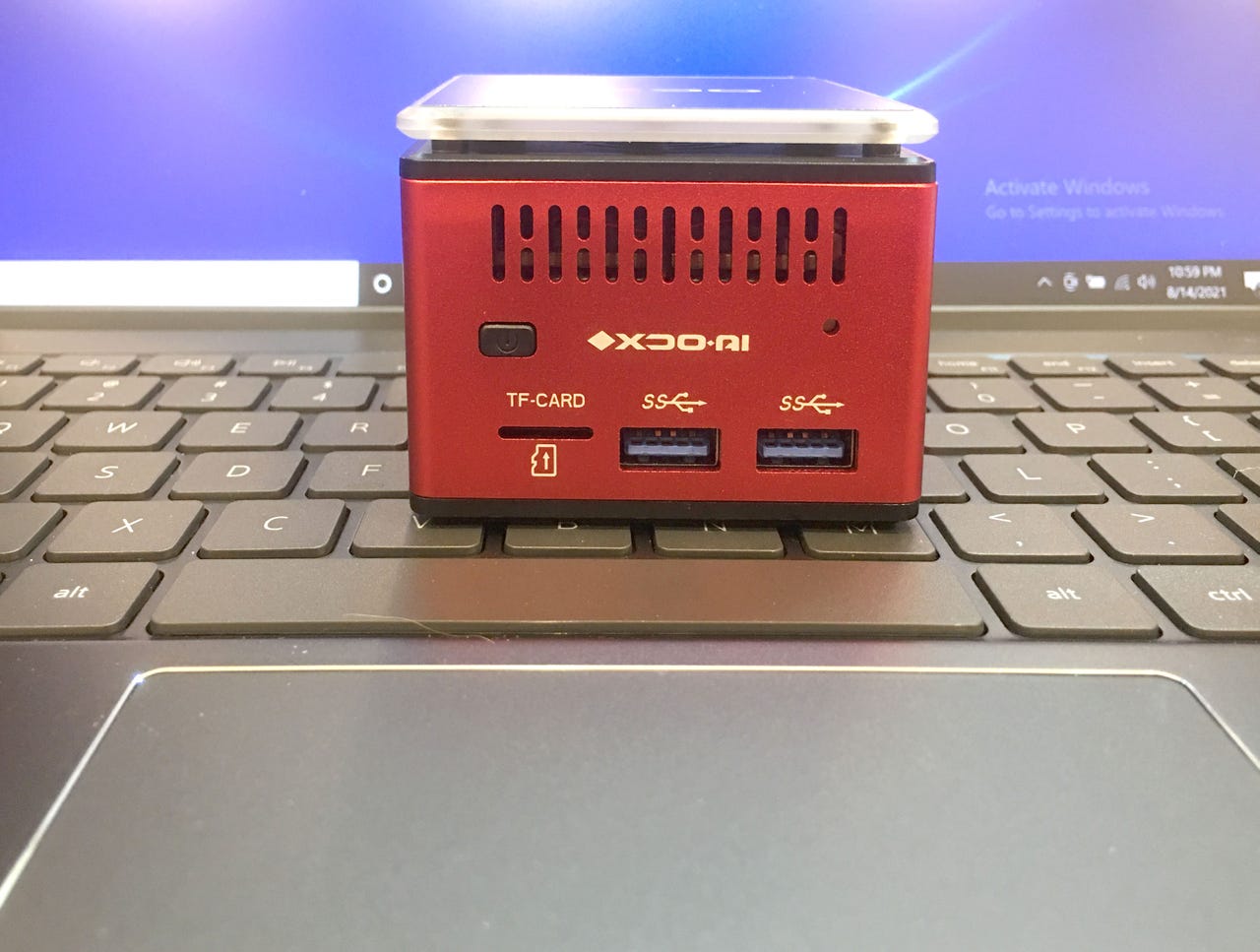Kickstarter hands-on: Putting the XDO Pantera Pico mini PC into perspective

Welcome back to our ongoing series: Kickstarter Hands-on. For years, I've avoided covering anything having to do with Kickstarter because of the chancy nature of some of the projects.
But because Kickstarter's rules have evolved to require prototypes for physical projects, the odds of getting what you "back" have increased. That said, I am explicitly not recommending you back any projects. I am also not evaluating projects based on the team or their viability.
Instead, I will devote the occasional Kickstarter Hands-on (and, by extension other crowdfunding sites' projects) to evaluations of products I can actually hold and use. That way, we can look at innovative projects and ideas and at the same time be sure the project has made it far enough in the prototyping stage to have small-run manufacturing so that we can test out the product for real.
This time, I'm looking at the XDO Pantera Pico mini PC. My colleague, ZDNet's Eileen Brown, did a formal review of the product last week. But XDO sent me a unit as well, and you know I couldn't resist giving it a spin.
Eileen covered a lot of the key details, so go ahead and read her review. I specifically wanted to get a handle on size and performance. This is an extremely small PC running full Windows 10. I wanted to know whether it was small in performance as well.
TL;DR: It ain't fast.
How tiny is this thing?
Small. Really small. Fits in the palm of your hand small. Wait, I can do better than describe it. Here's a picture of it sitting on top of a Mac mini:
And here's a picture of it sitting in front of the Dell Vostro, a machine I'd normally associate with sleek and small, but which looks positively like a monster next to the XDO Pantera.
What about speed?
The unit arrived in my mail in a product-ready condition. Had I not known this was a Kickstarter project, I would have assumed it was a product already in volume production.
The company seems to consider this a portable PC. Their idea is that they have a portable projector and a folding keyboard, and if you pair the cube PC with those devices along with a mouse and an external battery brick, you can carry it with you.
I'm not entirely sure why you'd want to do that when the form factor of a laptop is so proven, but hey, they did cram a lot into a tiny cube -- a relatively slow, tiny cube.
Let's start with this machine's GeekBench score:
Now, let's compare it to the Dell Vostro:
The Vostro's single threaded score of 1428 is three times faster than the 454 of the XDO Pantera. The Vostro's multi-threaded score of 5429 is three and a half times faster than the XDO's 1544.
Now, to be fair, the Vostro is running a Tiger Lake i5. The XDO Pantera is running a Gemini Lake Celeron. But they're not that far off in terms of spec. One is running 8GB RAM and the other 16, but both have more than enough for basic testing. The Gemini Lake Celeron and the Tiger Lake i5 both have four cores, but the Celeron is running a base clock speed of 2GHz while the i5 has a base clock of 2.79GHz.
Honestly, the specs don't justify the XDO Pantera running three times slower than the Vostro, which itself is not intended as a high performance machine.
Just for kicks, I decided to benchmark both machines against a 2012 i7 Mac mini.
While the Mac mini is substantially slower than the Vostro, it's still notably faster than the XDO Pantera. And it's almost nine years old.
So, who is this for?
Well, assuming the device makes it into regular production, it will be cheap: $219. I definitely don't see this as a portable machine and I don't think the XDO folks really have a handle on its user profile.
Where this would work out is replacing aging machines in offices, where people already have keyboards, monitors, and mice. This is something that could sit at the base of a monitor and certainly would work well enough accessing cloud-based apps and running the occasional Windows-only application while freeing up desk or floor space from larger, older standalone units.
It's not really powerful enough to run as an entertainment center PC, but if you just wanted a web browser hooked up to your big screen TV, this would do that task relatively well.
It's definitely not a home run, but it's inexpensive enough and slick enough to be cool.
So, there you go. Let me know what you think of this machine. Have you backed Kickstarter projects before? Can you think of a better use for this machine than the scenarios I proposed? Let us know in the comments below.
Disclaimer: The author does not recommend this nor any other Kickstarter project. I do not advocate backing any Kickstarter projects and recommend that if you do decide to back one, you go in with your eyes open. Many Kickstarter projects are resounding successes, but there have also been quite a few disappointments. Backer beware.
You can follow my day-to-day project updates on social media. Be sure to follow me on Twitter at @DavidGewirtz, on Facebook at Facebook.com/DavidGewirtz, on Instagram at Instagram.com/DavidGewirtz, and on YouTube at YouTube.com/DavidGewirtzTV.
